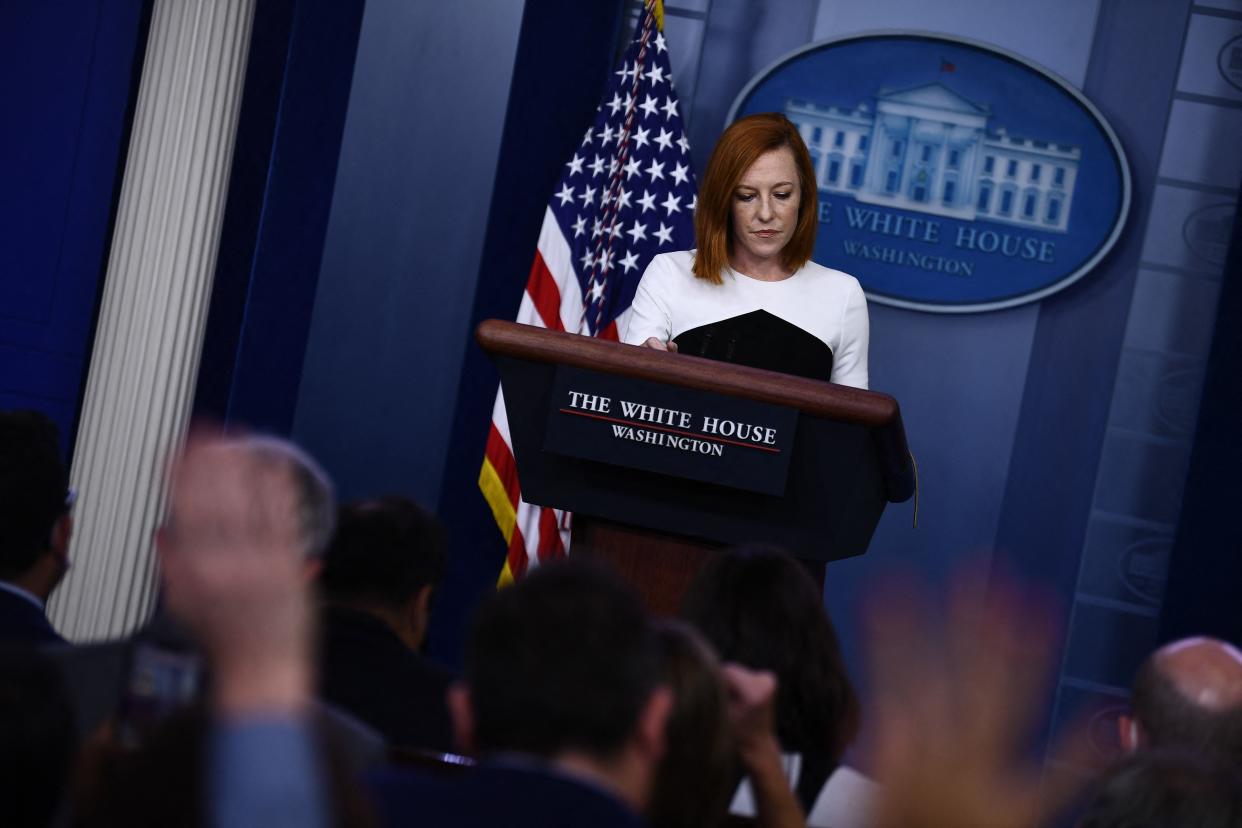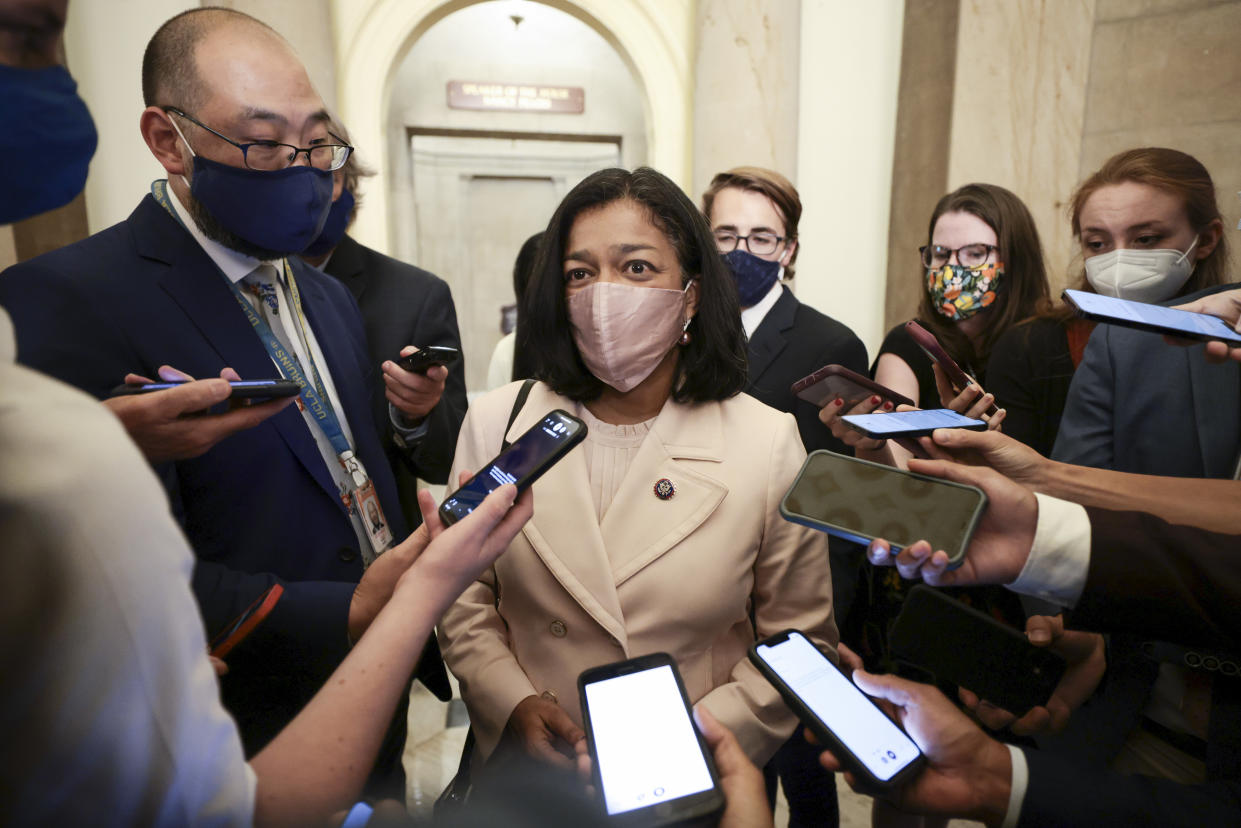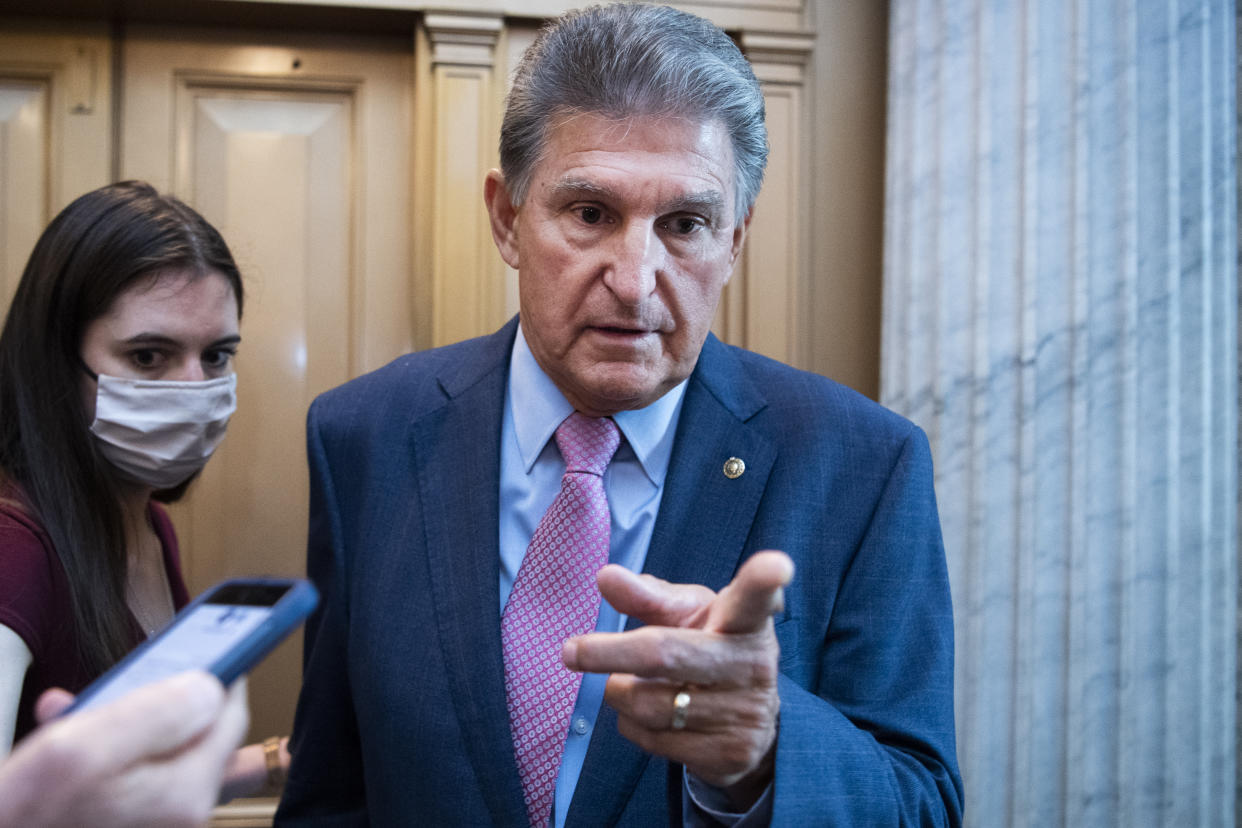Biden meets with congressional Dems as his domestic agenda hangs in balance
With his domestic agenda imperiled by disagreements within his party, President Biden is set to meet with moderate and progressive Democrats on Wednesday in a bid to bring the two factions together ahead of a looming vote on infrastructure spending.
The meeting comes in advance of next week’s major House vote on a bipartisan infrastructure deal that appears to be on shaky ground. Biden, Senate Majority Leader Chuck Schumer and House Speaker Nancy Pelosi have been pushing a two-track strategy that couples the smaller bipartisan deal with a larger, multitrillion-dollar budget package.
However, moderate Democrats are demanding a vote on the infrastructure deal prior to the budget passing. Progressives, meanwhile, want the bipartisan deal to pass in tandem with the $3.5 trillion budget proposal.
Enter Biden, who spent 36 years as a senator — experience the White House has touted as a sign of the president’s ability to corral lawmakers.

When Democrats’ dueling infrastructure priorities first came to a head in July, Biden said he wanted to pass both bills together, even suggesting he would veto the bipartisan legislation if the larger budget failed. Republicans balked at Biden’s ultimatum, however, and he quickly reversed course.
Press secretary Jen Psaki said at the July briefing that Biden was “ready, willing, able” and looking forward to the role he would play in “getting these pieces of legislation over the finish line.”
“Will that mean phone calls? Sure. Will it mean bringing more people to the White House? It probably will,” said Psaki.
Yet months later, the fate of both bills appears imperiled despite Democratic control of Congress. Psaki declined to call Wednesday’s meetings a “make or break moment” for the president. Instead, she labeled the meetings a “pivotal period.”
“This is an important moment. We’re in a pivotal period of our negotiations and discussions. We’ve always known as we get close to points where they are votes called ... that there needs to be deeper engagement by the president. That’s what you’re seeing happen today,” said Psaki.
“The president wants to hear from everybody on what they’re most excited about, what concerns they may have and wants to play a role in hopefully unifying members of the party about a path forward and he felt this was the most constructive format at this point,” Psaki said. “I will tell you this is probably not going to be his last engagement with a single member of congress in these important days forward.”

Psaki added that the president was not tied to the $3.5 trillion price tag for the budget proposal.
Biden is set to meet with a group of moderate and progressive Democrats along with Pelosi and Schumer. Moderates sitting down with the president include Sens. Joe Manchin of West Virginia and Kyrsten Sinema of Arizona, as well as Reps. Josh Gottheimer of New Jersey and Stephanie Murphy of Florida. The progressive wing includes Sen. Bernie Sanders of Vermont, chairman of the Budget Committee, and Reps. Pramila Jayapal of Washington and Katherine Clark of Massachusetts.
Biden has become more personally involved in the congressional negotiations as of late, meeting with both Manchin and Sinema last week.
The bipartisan deal spends about $500 million in new money to address traditional infrastructure priorities such as bridges, roads and waterways. The ambitious budget plan would address climate change and vastly expand the nation’s social safety net, which will be paid for in part by new taxes on higher-income Americans and corporations.
Jayapal has said that more than half of the 96-member Congressional Progressive Caucus that she chairs is ready to vote against the bipartisan bill unless the larger budget agreement has already been passed.
“I reiterated our long-held position that we are going to be delighted to vote for both bills once the reconciliation bill is passed and [we] deliver both bills to the president’s desk,” Jayapal told reporters Tuesday evening after meeting with Pelosi. “I don’t think the speaker is going to bring a bill up that is going to fail.”

“At the end of the day, if we don’t have the reconciliation bill done, the infrastructure bill will not pass,” Jayapal added. But Schumer said this week that the budget will not be ready by the Sept. 27 deadline set for the House vote on the bipartisan bill.
On Wednesday afternoon, Sanders and 10 other left-leaning Democrats released a statement indicating support for Jayapal and the other House progressives.
“We can create millions of good-paying jobs as we repair our crumbling infrastructure, address the climate crisis, and finally confront the long-neglected crises facing millions of low-income and working-class families across the country,” the statement said. “But we can accomplish those goals only if we stick to our original agreement.”
Jayapal told reporters prior to the meeting that Biden talked to her Tuesday night after she made an appearance on MSNBC. “He called me last night after I was on Maddow and congratulated me on doing a great job and said he was looking forward to talking to me, so I really want to hear what he has to say,” Jayapal said.
Among the moderates, Manchin has called for a pause on the budget negotiations until 2022, and Sinema has said she won’t vote yes on the larger deal — which requires unanimity among all 50 Democratic senators to pass — unless a House vote was held on the infrastructure deal by the Sept. 27 deadline. House leadership reiterated Tuesday that the vote would be held either Monday or Tuesday depending on length of debate.
“It would be deeply disappointing to have the bill on the floor only to have people … vote against it for political grandstanding,” said Murphy, a moderate Democrat from Florida who pushed for the Sept. 27 vote. Murphy added that if Pelosi were to pull the bill, “the mistrust that exists currently between members will spread to mistrust between leadership and members.”

While the infrastructure deal could in theory be saved by House Republicans who support the measure, it’s unlikely those votes will materialize unless it’s clear the larger budget plan is officially dead. This is in keeping with the Republican strategy, which has been to go along with a smaller infrastructure deal while trying to kill the rest of the Democrats’ agenda.
Democrats have also seen defections among their centrist members over a plan to reform prescription drug pricing by allowing Medicare to negotiate with pharmaceutical companies. The Senate parliamentarian, an advisory position that can be overruled by Vice President Kamala Harris or replaced, also decided against a plan that would include immigration reform in the budget deal.
On Tuesday, progressives threatened to tank a bill to avert a government shutdown if funding for Israel’s Iron Dome missile defense was not removed. The $1 billion was then eliminated from the bill, drawing the ire of pro-Israel members of the party.
____
Read more from Yahoo News:
